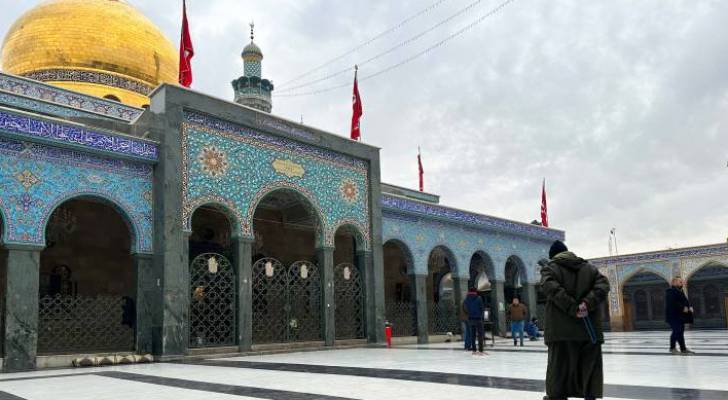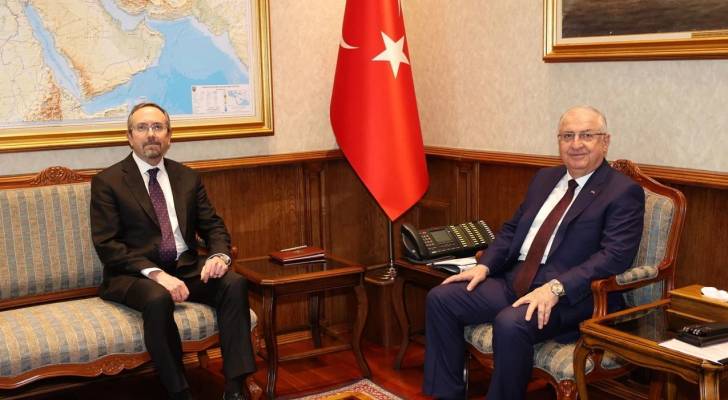Push to salvage climate talks after poor nations bristle at cash
AFP
BAKU — Key nations raced Saturday to salvage UN climate talks after the poorest countries pushed back angrily for more than $300 billion a year in help from historic wealthy emitters.
More than a day past the scheduled conclusion of two days of COP29 talks, host Azerbaijan urged bleary-eyed delegates to seek consensus to avoid failure.
"I know that none of us want to leave Baku without a good outcome," COP president Mukhtar Babayev told a late-night session, urging all nations to "bridge the remaining divide".
Developing power Brazil pleaded for at least some progress and said it would seek to build on it when it leads COP30 next year in the Amazon gateway of Belem.
"After the difficult experience that we're having here in Baku, we need to reach some outcome that is minimally acceptable in line with the emergency we're facing," Brazil's environment minister Marina Silva told delegates.
A number of nations have accused Azerbaijan, an authoritarian oil and gas exporter, of lacking the experience and will to meet the moment, as the planet again sets record temperatures and faces rising deadly disasters.
Small island nations threatened by rising seas and impoverished African states on Saturday angrily stormed out of a meeting with Azerbaijan, saying their concerns had been ignored.
The European Union, United States and other wealthy countries met directly with poorer nations to work out final details, with both blocs also concerned at efforts led by Saudi Arabia to water down calls from last year's summit to phase out fossil fuels.
"If we don't do it, people at home -- in every home across the world -- would say, why did you not get an agreement? Because I believe we can," Irish climate minister Eamon Ryan told AFP.
A draft of the final text seen by AFP proposes that rich nations raise to $300 billion a year by 2035 their commitment to poorer countries to fight climate change.
It is up from $100 billion now provided by wealthy nations under a commitment set to expire -- and from $250 billion proposed in a draft Friday.
That offer was slammed as offensively low by developing countries, which have demanded at least $500 billion to build resilience against climate change and cut emissions.
Sierra Leone's climate minister Jiwoh Abdulai, whose country is among the world's poorest, called the draft "effectively a suicide pact for the rest of the world".
Tired and 'disheartened'
As staff at the cavernous and windowless stadium began closing down, diplomats rushed to meetings with one another, some ready with food and water in preparation for another late night.
Panama's outspoken negotiator, Juan Carlos Monterrey Gomez, voiced anger at offers by rich countries but warned not to repeat the failure of COP15 in Copenhagen in 2009.
"I'm sad, I'm tired, I'm disheartened, I'm hungry, I'm sleep-deprived, but there is a tiny ray of optimism within me because this cannot become a new Copenhagen," he told reporters.
UK Energy Secretary Ed Miliband said the revised offer of $300 billion was "a significant scaling up" of the existing pledge by developed nations, which also count the United States, EU and Japan among their ranks.
Climate activists shouted "shame" as US climate envoy John Podesta walked the halls. "Hopefully this is the storm before the calm," he said.
Wealthy nations say it is politically unrealistic to expect more in direct government funding.
Donald Trump, a sceptic of both climate change and foreign assistance, returns to the White House in January and a number of other Western countries have seen right-wing backlashes against the green agenda.
The draft deal posits a larger overall target of $1.3 trillion per year to cope with rising temperatures and disasters, but most would come from private sources.
-'Not going backwards'
Ali Mohamed, the Kenyan chair of the African Group of Negotiators, told AFP: "No deal is better than a bad deal."
South African environment minister Dion George, however, said: "I think being ambitious at this point is not going to be very useful."
"What we are not up for is going backwards or standing still," he said. "We might as well just have stayed at home then."
The US and EU have wanted newly wealthy emerging economies like China -- the world's largest emitter -- to chip in.
China, which remains classified as a developing nation under the UN framework, provides climate assistance but wants to keep doing so on its own voluntary terms.
The EU and other countries have also tussled with Saudi Arabia over including strong language on moving away from fossil fuels, which negotiators say the oil-producing country has resisted.
"We will not allow the most vulnerable, especially the small island states, to be ripped off by the new, few rich fossil fuel emitters," said German Foreign Minister Annalena Baerbock.
Latest News
 Trump officially becomes first convicted felon to assume presidency
Trump officially becomes first convicted felon to assume presidency Syrian leader Ahmad Al-Sharaa departs on first diplomatic visit
Syrian leader Ahmad Al-Sharaa departs on first diplomatic visit Syrian Intelligence foils Daesh attempt to bomb Sayeda Zainab shrine
Syrian Intelligence foils Daesh attempt to bomb Sayeda Zainab shrine Jordan, Syria unify customs fees
Jordan, Syria unify customs fees US says military presence in Syria serves “very specific purpose”
US says military presence in Syria serves “very specific purpose”
Most Read Articles
- 5% increase in number of companies registered in 2024
- As Jordan resumes trade with Syria, Cabinet approves measures to boost agricultural exports
- Safadi participates in Syria talks in Saudi Arabia
- King, in phone call, congratulates Lebanon’s president on election
- Flights resume at Queen Alia International Airport after fog delays
- $554m disbursed by World Bank for 4 projects financed to Jordan for the year 2024
- King receives Vatican's Secretary of State
- Jordan allows entry for Syrians residing abroad without prior approval
- Los Angeles investigates fire blame as curfew enforced
- Investment, trade indicators rise in 2024 — Free, development zones